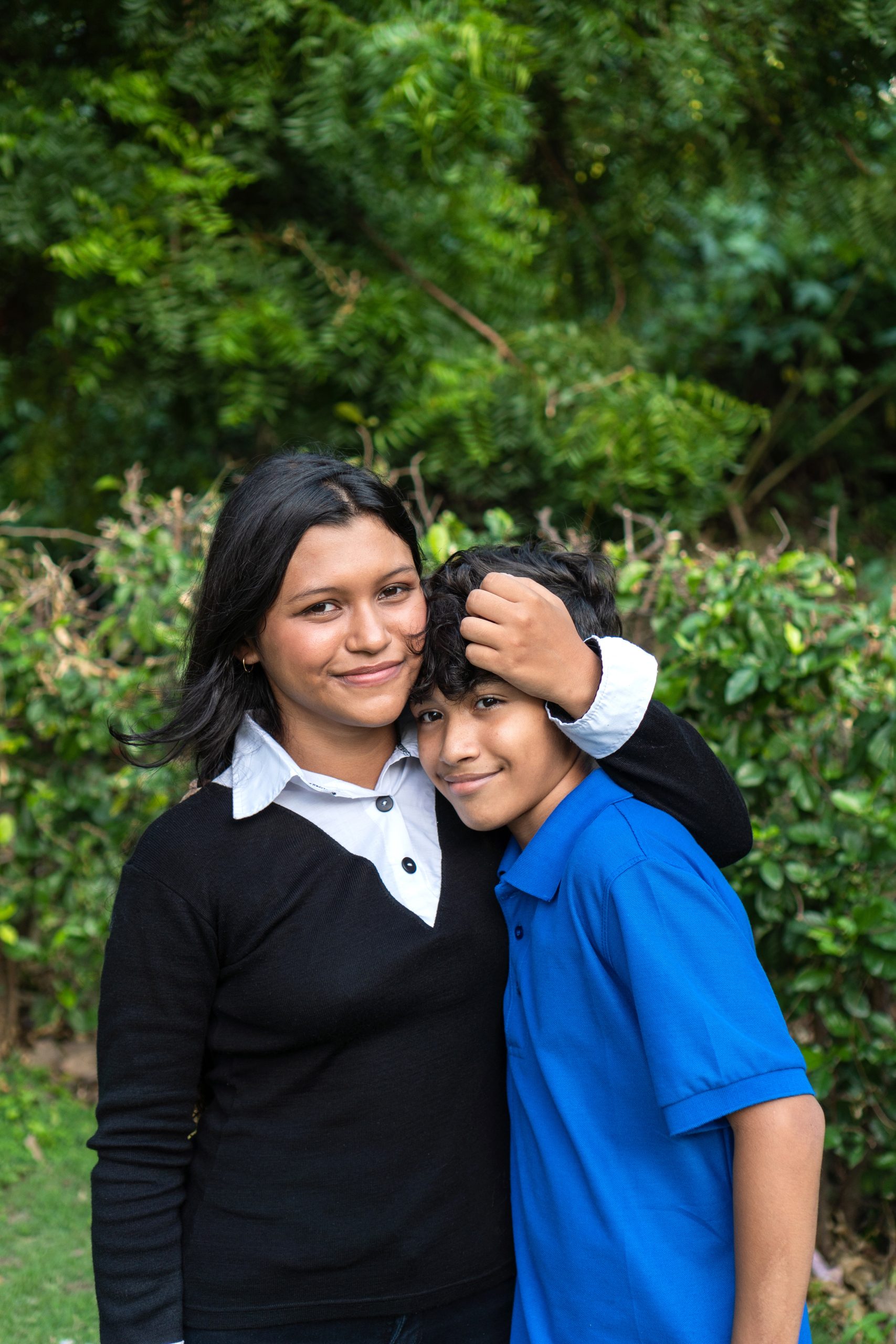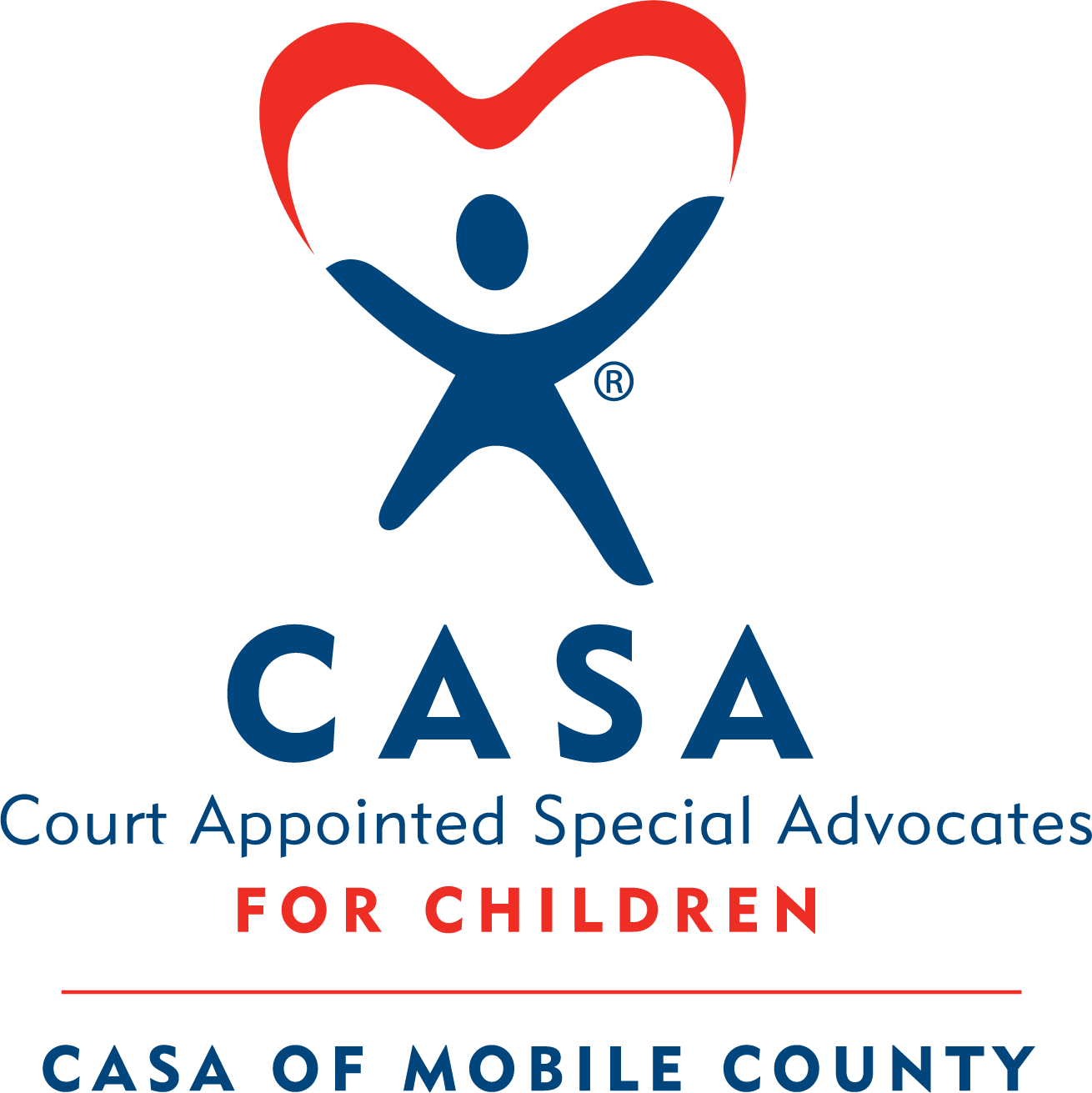Hope Needs a Helping Hand
Become a CASA Volunteer!

Are you interested in a volunteer role where you really know you are making a difference for some of the most vulnerable children in our community?
CASA volunteers make a life-changing difference for a child. Court Appointed Special Advocate (CASA) volunteers advocate for the best interests of children who have experienced abuse or neglect. Volunteers work to ensure that judges have all the information they need to make the most well-informed decisions for each child. More volunteers are desperately needed. There’s a child waiting for someone like you. CASA Mobile has several volunteer training courses each year. If you believe you are ready to change a child’s story, please call the CASA office at 251-574-5277 and register for our next training course!
Upcoming Training Schedule:
June 3, 2024: 5:30 PM – 8:30 PM
June 6, 2024: 5:30 PM – 8:30 PM
June 10, 2024: 5:30 PM – 8:30 PM
June 13, 2024: 5:30 PM – 8:30 PM
June 17, 2024: 5:30 PM – 8:30 PM
June 20, 2024: 5:30 PM – 8:30 PM
CASA training consists of 30 total hours of course instruction completed through some in-person classes and some independent study with an optional courtroom observation.
All classes must be attended. Make-up classes may be available in the event of illness.
Once a trainee has completed the training course, they will be sworn-in by the judge and will be eligible to begin working cases.
What Do CASA Volunteer Advocates Do?
Volunteer responsibilities include:
- Spending a significant amount of time with a child to build a relationship and gain his or her trust
- Exploring all aspects of the child’s life and gathering information from everyone involved, including family members, foster parents, teachers, daycare providers, doctors, lawyers, social workers and other relevant persons
- Ensuring the child has access to needed services, i.e. medical, education and housing
- Accompany the child to every court hearing to advocate for their needs
- Providing a comprehensive picture of the child’s life to the judge
- Promoting safety and bringing a sense of urgency to the child’s needs
- Committing to advocate for the child’s best interest until he or she reaches a safe, permanent home
CASA volunteer advocates must:
- Be willing to commit several hours of their time each month for at least one year
- Communicate effectively both orally and in writing
- Participate in an in-depth training program
- Participate in 12 hours of in-service training each year
- Pass criminal and DHR background checks
- Be 21 years or older
Take the First Step
CASA volunteers can sometimes make dreams come true.
Changing a Child’s Story

Data shows that children who are assigned a CASA volunteer advocate are more likely to:
Find a safe, permanent home
Spend less time in foster care
Have fewer moves between foster placements
Do better in school
Receive the services they need
Avoid re-entry into foster care
CASA programs are positively impacting the lives of abused and neglected children.
You can help abused, neglected and abandoned children across Mobile County by getting involved with the Court Appointed Special Advocates (CASA) program.
Get in Touch. Get Involved.
Are you ready to speak up for children in need?
Together we can improve the lives of abused and neglected children in Mobile County.
2315 Costarides Street Mobile, AL 36617
Call Us: (251) 574-5277
CASA Mobile, Inc. is totally funded by grants and personal donations. For additional information or to receive an application, please call 251-574-5277 or email Elizabeth Walter at casaejw13@gmail.com.
Donate to CASA
Please send donations to:
CASA Mobile, Inc.
Strickland Youth Center
2315 Costarides Street
Mobile, AL 36617
For additional information or to receive a volunteer application packet, please contact Elizabeth Walter at 251-574-5277 or casaejw13@gmail.com
